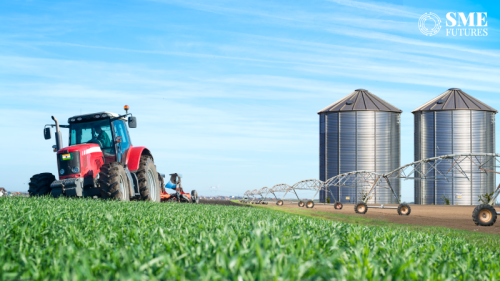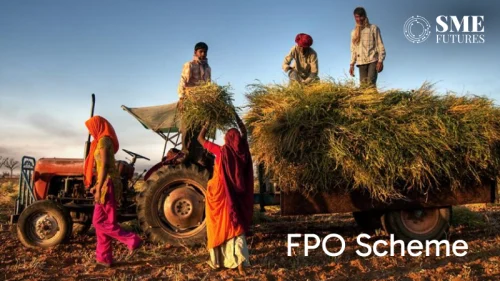The J&K government has launched new initiatives to promote the marketing and export of specific products from the union territory. Geographical Indication (GI) tagging is also one such initiative which would go a long way in marketing and exporting specific products like saffron.
Kashmir saffron, which is cultivated and harvested in the Karewa (highlands) of Jammu and Kashmir, has been given the GI tag by the Geographical Indications Registry. The spice is grown in some regions of Kashmir including Pulwama, Budgam, Kishtwar and Srinagar region of J&K.
This is a landmark development. The application was filed by the Directorate of Agriculture, Government of Jammu & Kashmir and facilitated by the Sher-e- Kashmir University of Agriculture Science and Technology, Kashmir and Saffron Research Station, Dussu (Pampore).
With the GI tag for Kashmir saffron, India has become the only saffron producing country for which the indication has been assigned. India as a signatory of WTO’s TRIPS (Trade Related Aspects of Intellectual Property Rights) and an active member of the WIPO (World Intellectual Property Organisation) has a law for protection of GI, viz “Geographical Indications of Goods (Registration and Protection) Act, 1999. The GI tag is issued after the GI registry under the Department of Promotion, Industry and Internal Trade (DPIIT), Ministry of Commerce and Industry.
According to the World Intellectual Property Organisation (WIPO), GI is a sign used on products that have a specific geographical origin and possess qualities or a reputation that are due to that origin. In order to function as a GI, a sign must identify a product as originating in a given place.
In India, Karnataka has the highest number of GI tags, i.e., 47 products followed by Tamil Nadu (NS:TNNP) (39). At international level Germany has the largest number of GIs in force (9,499), followed by China (7,566), the EU (4,914), the Republic of Moldova (3442) and Bosnia and Herzegovina (3,147).
Saffron growers of Kashmir are hopeful to get better prices for their product after the introduction of GI tag. This would enable India to be an important player in the global saffron market in which Iran, the world’s largest producer of saffron in the world, has the largest market share.
Kashmir saffron is grown at an altitude of 1600m to 1800m above mean sea level, which adds to its uniqueness in comparison to other saffron varieties.
The Government of India and UT of J&K are together taking steps to promote Kashmiri products with their own unique selling proposition (USP). With the vision to promote sustainable trade and create market linkages, a mega buyer — seller meet was organised on April 21, 2022 at Jammu and Kashmir under One District One Product Initiative (ODOP) of (DPIIT), Ministry of Commerce and Industry with the support of Jammu & Kashmir Trade Promotion organisation (JKTPO).
The ODOP initiative, which is an outcome of the ‘Atmanirbhar Bharat’ (Self- Reliant India, programme aims at increasing farmer’s and small scale industries’ income covering about 700 products cutting across sectors like agriculture, textiles, handicrafts and manufacturing. There are many Kashmiri products which may be popularised for their USP including carpets, shawls, wood carving, phoolkari, etc. There are some specific agricultural and horticultural products including apple and saffron and sericulture products. Kashmir has the best quality Bivoltine Meberry silk in India. This silk is well- known for superior quality, soft texture, extended length and adaptability to all types of climate changes.
Also Read: India achieving US$ 400 bn goods export target key ‘Aatmanirbhar Bharat’ milestone: PM
Alongside the buyer-seller meet, an e-commerce boarding session was also held by one of the leading e-commerce players in the country in order to support J&K based sellers to expand trade into web-based sales. Previously, the ODOP initiative had facilitated the sale of 6750 Kgs of apples and 2000 Kgs of walnuts from Budgam, Kashmir to Karnataka based buyers who were previously importing the same.
The Agricultural and Processed Food Products Export Development Authority (APEDA) has also begun new initiatives to popularise some of the agricultural products from the union territories of Jammu, Kashmir and Ladakh such as fragrant rice variety Mushkbudji, Acacia honey and Kashmir valley apples. Already, commercial shipments of Ladakh Halman apricots from Leh to Dubai have begun.











